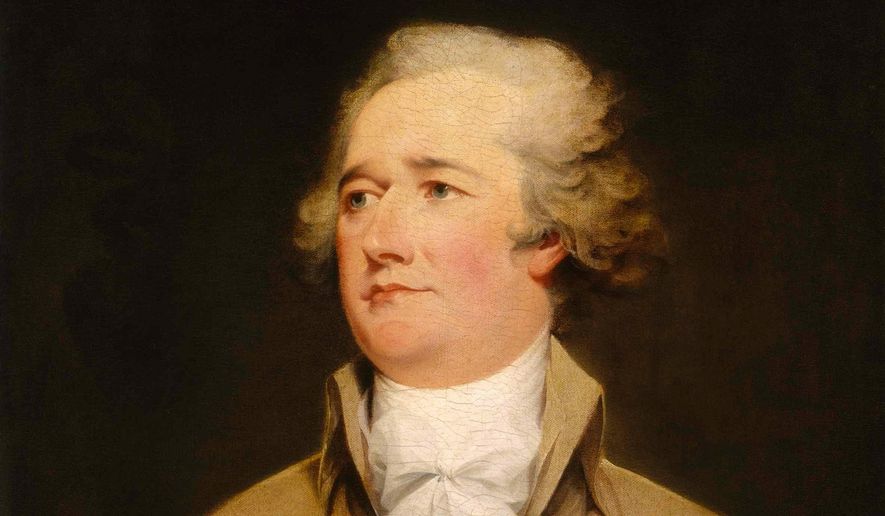OPINION:
Manufacturing a crisis is what pundits and politicians do best, and the media mills are running three shifts daily now to manufacture panic over what the Democrats want the public to think is the impending impeachment of President Obama.
This might frighten the horses and scare the women in flyover country, but it’s all fun and games in Washington, with the game recognized by Democrat and Republican for the scam it is. But the purveyors of the scam are determined to turn a profit with it. Sometimes scams succeed. This could be the opportunity to learn a little about impeachment.
John A. Boehner, the speaker of the House, dismisses the impeachment talk for a fundraising gimmick to squeeze contributions to Democratic congressional candidates who would be a bulwark against the threat of removing Mr. Obama from his office. Not a single member of Congress actually believes, or would privately admit to believing, that the chance of that succeeding rises from zero to as high as none. But the Democrats think they can make the threat believable, which only illustrates what they think of Dubuque and Peoria.
“All of a sudden,” says columnist Rich Lowry in The Politico, “Democrats are acting as if it is February 1868 or December 1998 all over again, and the president is on the verge of losing an impeachment vote in the House.” Andrew Johnson, a Republican from Tennessee, survived in that distant ’68. So did Bill Clinton, the sometimes endearing rogue from Arkansas, in ’98. And so would Barack Obama, the messiah from Illinois, if the Republicans put impeachment to a vote now in the House.
Beyond the manufactured panic over the actual prospects of an impeachment vote, there’s an interesting argument over whether Mr. Obama has actually committed a “high crime” or a high “misdemeanor” worthy of impeachment. The law professors can argue it either way, and ordinarily these are arguments confined to classrooms, like an Ebola virus confined to a high-security laboratory. But now that anyone with a laptop can aspire to high-decibel punditry, such arguments escape into the bawdy modern media where facts and “factoids” have equal currency.
The framers of the Constitution deliberately left the definition of a high crime and a high misdemeanor vague and open to endless interpretation. They thought they were writing a Constitution for the sons and daughters of generations of refined Englishmen, after all, who would regard public affairs as the preserve of gentlemen not given to flights of anger and resentment. They never imagined a president as a man not like themselves. Seducing an intern into a handy pantry for hanky-panky and lying under oath about it was unimaginable. Such behavior was something to discuss after dinner and cigars, after the ladies had been dismissed to the safety of the parlor. Bubba would have been out in Pennsylvania Avenue, holding a senator’s horse.
But a president with the brazen boldness to dismiss the duly enacted laws of Congress as mere trivia of inconvenience was beyond the imagination of the framers, too. They would have thought Mr. Obama’s profession of respect for the Constitution was so obvious as to be unremarkable, as when he told impatient Hispanic journalists three years ago: “I just have to say this notion that somehow I can just change the laws unilaterally is just not true. We are doing everything we can administratively. But the fact of the matter is there are laws on the books that I have to enforce.” Said the president on another occasion: “We are a nation of laws.”
So were we all taught in a day now fleeing into history. We no longer pay either the founding document or the words in it with the respect that words once invited. When anything goes, as we are learning, everything goes. Gerald Ford once remarked that an impeachable offense was whatever Congress says it is. This was regarded as high cynicism at the time four decades ago when he said it, but it does not seem so cynical now. Barack Obama clearly regards as permissible whatever he can get away with.
Alexander Hamilton defined an impeachable offense as one that proceeds “from the misconduct of public men … from the abuse or violation of some public trust.” This seems harsh in an anything-goes culture, but it was not so once upon a different time.
Now we must regard not the facts of an impeachable offense, but the politics of dealing with it. This is why the wise and the savvy among the Republicans understand that the way to neuter this president is through politics, and the congressional elections now fast approaching, and not through deliberately vague and squishy law.
Wesley Pruden is editor emeritus of The Washington Times.




Please read our comment policy before commenting.